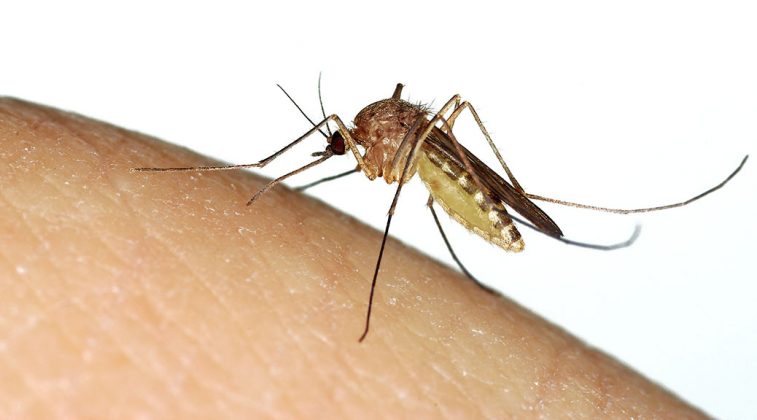Last week the South Dakota Department of Health (DOH) confirmed the first human West Nile virus (WNV) case of the 2024 season in a resident of Beadle County. South Dakota has reported more than 2,843 human cases and 53 deaths since WNV was first reported in 2002.
“West Nile virus is an infection most commonly spread through mosquito bites,” said Dr. Joshua Clayton, state epidemiologist. “The rate of severe infection that includes swelling of the brain and spinal cord with symptoms of stiff neck, confusion, and muscle weakness is highest in South Dakota and other Midwest states. Raising awareness of human cases can ensure residents and visitors alike take action to reduce their risk.”
Individuals and families can reduce their risk by taking the following actions:
- Apply mosquito repellents (DEET, picaridin, oil of lemon eucalyptus, 2-undecanone, param-menthane-diol, or IR3535) to clothes and exposed skin. Limit exposure by wearing pants and long sleeves in the evening;
- Limit time outdoors from dusk to midnight when mosquitoes are most active. Culex tarsalis are the primary carrier of WNV in South Dakota;
- Remove standing water that gives mosquitoes a place to breed. Regularly change the water in birdbaths, outside pet dishes, and drain water from other flowerpots and garden containers and stay away from areas near standing water; and
- Support local mosquito control efforts.
These precautions are especially important for people at high risk for WNV, including individuals over 50, pregnant women, organ transplant patients, individuals with cancer, diabetes, high blood pressure or kidney disease, and those with a history of alcohol abuse. People with severe or unusual headaches should see their physicians.
“This year, nearly 200 South Dakota cities, counties and tribes will share $500,000 in grants intended to control mosquitoes and prevent West Nile virus,” added Dr. Clayton.
All applying communities received funding with grants ranging from $500 to $20,000. Grant awards were based on the population of the applying jurisdiction and its history of human WNV cases through 2023. This reimbursement grant helps alleviate some of the costs the help control mosquitos that pose a risk of the West Nile virus.
Visit the department’s website for more information about WNV and to learn about which jurisdictions received grant funding. Additionally, the department’s surveillance page includes which counties have reported cases.
At the heart of the Department of Health’s mission is a simple goal: to protect and improve the health of all South Dakotans. The department is entrusted with the vital task of promoting wellness, preventing disease, and ensuring access to quality healthcare for all South Dakotans.




